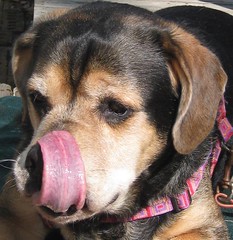 Two months had passed. He was their, “model patient.”
Two months had passed. He was their, “model patient.”
He hadn’t read the patients’ rights literature. He believed, as I did, that exercising those rights would only bring trouble.
“He’ll be our star,” the psychiatrist and social worker told us, referring to the transition unit they were recommending for him.
The program on the unit sounded pretty good when they first told us about it. As with much of what they told us, details were revealed later, after decisions had been made. We soon learned that a patient normally waits (in the hospital) nine or more months to get in.
The other part they didn’t tell us was that patients in that particular unit are more deeply under, “the motherly care,” of an institution. The doctor and her team were as elusive about how long he would stay in the different unit, as they had been about how long it would take to get in. After speaking with a few professionals, I learned they could keep a patient as long as they deemed necessary. I understood this meant however long it took to convince the patient that he or she had to take medication, no matter what, every day for the rest of his or her life, aka, compliance.
A patient can say no to medication in a psychiatric hospital, but if the treating psychiatrist believes drugs are necessary, then almost always, medication it is.
He took the medication. He was quiet. He went to classes, most of the time, except when the medication sedated him to the point that he could not stay awake. He gained almost sixty pounds. His blood tests changed from normal to abnormal. He accepted gracefully, “No,” when he asked if he could take a lower dose or change medications. He came back from the passes they gave him to go out with his family.
Hospital psychiatrists basically have their own government. If a patient says no to recommended treatment, the psychiatrist simply goes to the hospital’s court, which occurs weekly and presents his or her case to their judge. The doctor usually has several other medical team members present; psychologists, social workers and nurses, to aid in the request for forced treatment. The patient has the right to contest, and is given either a legal advocate or an attorney, but hospital judges almost always give the requesting psychiatrist permission to “treat” the patient.
We chose not to contest the necessary court hearings for a few reasons, the first of which was, that the social worker revealed only pieces of what they were asking for and ultimately, we believed we wouldn’t win. At least, not until after I could come up with a solid plan to present to them. A plan that would offer their patient, my son, equal and better “treatment” than what they had in mind for him. We could only hope they would do the right thing, which was to help us in outpatient planning for treatment in the community. I worked rather obsessively on creating, “A Plan for Recovery.”
It was amazing really. All the things the psychiatrist and her colleagues came up with to use against him, some of which were fabricated stories with threads of truth either exaggerated, misinterpreted or grossly over-approximated.
“The county is getting tired of,” the social worker had said the first time we spoke. I interrupted her. I couldn’t help myself.
“Which county would that be?” I asked her. My son had been tossed around in several counties since we turned to psychiatry for help.
“He’s been in the hospital,” and she grandly stated a specific number of times to justify why, “the county was tired.” Even if her number had been correct, which it wasn’t, it was still relatively low according to what I had learned in NAMI’s Family-to-Family education. I felt lied to in a way. Betrayed.
I’d taken the classes, which are strongly recommended by these same psychiatrists, hospitals and institutions. What I had learned was the best thing to do for a loved one in a mental health crisis was used against my son.
“That’s not correct information you have,” I told her the next time she made use of the number she grabbed out of thin air. Instead of looking for the accurate number of times he had been in a hospital, she divided her fictional number by two. By this time, we were almost out the door, so I let her have her number.
I called a meeting with the psychiatrist and her colleagues to present an outpatient treatment plan, even though this is not how things are usually done in a psychiatric facility. A family member can most certainly meet with the doctor and/or team of professionals caring for a loved one, but normally, social workers are responsible for outpatient planning. They refused to help us with outpatient planning because they wanted him to stay. They said if I wanted to come up with a plan, then they would listen, so I did.
“What if he doesn’t make it at this work-study job?” they asked me during the meeting. “We’ve been informed that if he can’t make it on time, then he’ll be terminated.”
I reiterated to them that the ACT team worked with him for years and never even got him a job interview.
“This is a work-study job at a meditation retreat center,” I told the group of scrutinizing psychiatric professionals. “He’ll be outside, learning carpentry, landscaping and building maintenance skills,” I told them. I didn’t focus on the spiritual teaching that would be offered as part of the work-study job. I was afraid they would come up with a reason that this wouldn’t be good for their patient.
“We are afraid he won’t make it,” they kept saying.
They should have said things like this several years ago, when I was asking for their help.
They talked as if they expected the world to suddenly be perfect for my son, whom they had repeatedly neglected for many years. The hospital didn’t have visits from anyone offering jobs in the community, much less directors offering one of their patients a much desired position that would nurture personal and spiritual insight, community involvement and meaningful work.
“He’s been sleeping in groups,” the psychiatrist said. She was grasping at strings. Very thin ones, I thought. She looked over at her patient. He was sitting at the end of the long table, obviously, without any confidence that he might get released from their toxic care. In a righteous way the psychiatrist asked him, “How can you function in the real world if you’re falling asleep in our (interesting and stimulating) groups?” It was more a statement than a question.
He looked around. He didn’t have an answer.
They were giving him a dosage of medication that I had seen caused him to not be able to walk. I had seen him staggering, falling against walls, half asleep in the middle of the night, while stumbling to the rest room. Plus, they were giving it to him in the morning!
I had asked my mother to be discriminating about what she said during the meeting, because they would use everything against us. She had been quiet, although, I later learned she hadn’t heard everything, so maybe that’s why, but she responded in defense of her grandson’s rights.
“Maybe he’s bored in those groups,” she said. “He won’t be bored when he gets out of here. He can come to my house. I have everything,” and with that conviction, she had waved her arms in the air, communicating the vastness of what she had to offer compared to the hospital’s unit the doctor was advocating. “Y’all don’t have any of the things we have,” she added.
Mother looked at me. I knew she wondered if she had said too much. I didn’t think so. My sister chimed in about that time, remarking on the weight he had gained from the medication and not exercising. “I’ve seen what gaining weight does to people. They get tired. Uhh, he’s gained a lot of weight since he came here. We can see that.”
I was glad they had come to the meeting!
“Which classes is he falling asleep in?” I asked.
The doctor didn’t know. Her sidekick, the psychologist who wanted every single person he met to know he held a PhD, murmured something under his breath.
“Does he fall asleep in the Yoga class?” I asked, while they were still thinking.
They looked at each other. The social worker shook her head no.
“He’s never liked lecture classes. He likes hands on learning and experiential education,” I told them. “He thrives outdoors,” I added.
I had told the psychiatrist, before the meeting, that I couldn’t understand how she could keep my son when he was not a danger to himself or others. I hadn’t meant to say that, but when his liver panels continued to come back abnormal and his cholesterol and weight were rising like a flood, I became upset.
“It isn’t even legal. What you are doing is unethical and illegal,” I told her.
We hadn’t spoken again, until the day of the meeting. She still didn’t say much to me. She did look at the photo I brought with me. It was of my son, smiling, shortly before he was admitted to their hospital. “He was much happier and healthier,” I told her, which he was.
My son was discharged shortly after the meeting.
Thank you for visiting Dogkisses’s blog!
Beyond Meds: Alternatives to Psychiatry
 The producer of this film, Lise Zumwalt, is looking for funding to continue making it. See here and donate please, even a small amount.
The producer of this film, Lise Zumwalt, is looking for funding to continue making it. See here and donate please, even a small amount. Two months had passed. He was their, “model patient.”
Two months had passed. He was their, “model patient.” IMAGE CREDIT:
IMAGE CREDIT: 




 The inpatient psychiatrist assigned to my son the next day was awesome. He did not force antipsychotic treatment on his patient. He said it would be like breaking his spirit.
The inpatient psychiatrist assigned to my son the next day was awesome. He did not force antipsychotic treatment on his patient. He said it would be like breaking his spirit. 



























Recent Comments